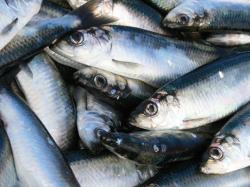Atlanto-Scandian Herring Fisheries Join Forces For MSC Assessment
June 27, 2014 | 3 min to read

An international group of Atlanto-Scandian herring fisheries has come together to take their fisheries through the MSC re-certification process. The fisheries from the UK, Denmark and The Netherlands are already MSC certified, they will be joined in the assessment process by Swedish and Irish fisheries. In total the group catches over 40,000 tonnes of herring each year.
Camiel Derichs, Director Europe of the MSC, says: “This is a really smart move by the Atlanto-Scandian herring fisheries. By working together and combining their resources into one assessment, they will see significant cost savings over working separately. This is a model that could be followed by many other fisheries where fishers use similar fishing gear to target a shared stock.”
The fisheries involved are:
- SPSG (Scottish Pelagic Sustainability Group)
- DPPO (Danish Pelagic Producers Organization)
- PFA (Pelagic Freezer-trawler Association – Netherlands)
- SPFPO (Swedish Pelagic Federation Producers Organisation)
- KFO (Killybegs Fishermen’s Organisation – Ireland)
Esben Sverdrup-Jensen, from the DPPO, explains: “All of our fishers’ organizations share a common interest in the sustainability of the Atlanto Scandian herring fishery. By working together on this assessment, our fisheries will improve further the international cooperation that is so important for managing the fishery. We will also see cost savings which will benefit all of our member vessels. I hope that this way of working can be applied to other fishers’ organizations.”
For further information, please contact James Simpson, Marine Stewardship Council on +44 (0)207 246 8913 or email james.simpson@msc.org
The Marine Stewardship Council (MSC) is an international non-profit organisation set up to help transform the seafood market to a sustainable basis. The MSC runs the only certification and ecolabelling programme for wild-capture fisheries consistent with the ISEAL Code of Good Practice for Setting Social and Environmental Standards and the United Nations Food and Agricultural Organisation Guidelines for the Eco-labelling of Fish and Fishery Products from Marine Capture Fisheries. These guidelines are based upon the FAO Code of Conduct for Responsible Fishing and require that credible fishery certification and eco-labelling schemes include:
- Objective, third-party fishery assessment utilising scientific evidence;
- Transparent processes with built-in stakeholder consultation and objection procedures;
- Standards based on the sustainability of target species, ecosystems and management practices.
The MSC has regional or area offices in London, Seattle, Tokyo, Sydney, The Hague, Glasgow, Beijing, Berlin, Cape Town, Copenhagen, Halifax, Paris, Madrid, Moscow, Stockholm, Santiago, Sao Paulo, Singapore and Reykjavik.
In total, 335 fisheries are engaged in the MSC programme with 237 certified and 98 under full assessment. Another 40 to 50 fisheries are in confidential pre-assessment. Together, fisheries already certified or in full assessment record annual catches of close to ten million metric tonnes of seafood. This represents over ten per cent of the annual global harvest of wild capture fisheries. Certified fisheries currently land over seven million metric tonnes of seafood annually – over eight per cent of the total harvest from wild capture fisheries. Worldwide, more than 22,000 seafood products, which can be traced back to the certified sustainable fisheries, bear the blue MSC ecolabel.
For more information on the work of the MSC, please visit www.msc.org
Source: Marine Stewardship Council (MSC)
